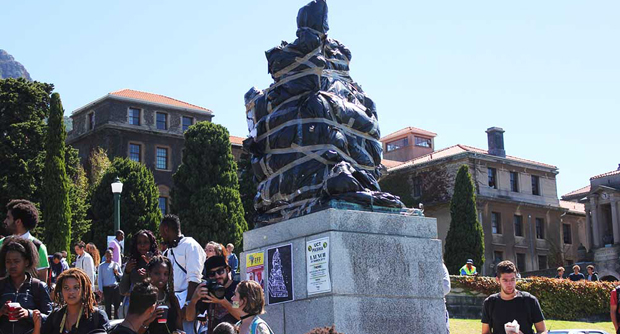Vice chancellor Max Price has recommended that UCT establish a forum similar to the TRC to address transformation and the lack of integration at the university. RA’EESA PATHER reports.
University of Cape Town (UCT) Max Price has suggested, in his personal capacity, that developing a TRC-based initiative where staff and students discuss their experiences and the marginalisation they feel on campus could help accelerate transformation at the university.
Speaking to The Daily Vox managing editor Faranaaz Parker on Thursday, Price said: “The starting point is to bring together the people who are feeling passionate about transformation and hear what they think should be done urgently.â€
Price said that the university’s Faculty of Health Sciences had instituted a TRC-style forum in 2002 to allow students and staff to expressed anger and hurt that stemmed from apartheid during special discussion sessions.
It is this anger that is now starting to re-emerge, he said.
“We now have more students and staff who come from that background and who want to express that,†Price said.
In recent days, students and staff who form part of the Rhodes Must Fall protest movement have condemned the university for discriminating against black students and staff members through institutional racism and slow-paced transformation. The movement has said that it is students and staff who should determine how transformation is achieved rather than UCT management.
Student protestors at the university have demanded that the statue of Cecil John Rhodes be removed and that the university do more to promote staff transformation.
Currently, the university does not employ a single full-time black female professor, and students have issued concerns about racism among their classmates.
Mother City “unwelcomingâ€
Asked to comment on why black staff leave the university, Price said that, among other reasons, staff who have left the university say that both UCT and Cape Town are unwelcoming to black professionals.
“Some people certainly feel that both the university and Cape Town – I’m now talking about black African academic and non-academic staff – they feel that this is not a friendly environment for black African professionals,†Price said.
“The environment itself is an obstacle to that integration … both the environment in the university and the environment in some parts of Cape Town,†Price said.
In the short term, he said, the university plans to address transformation through evaluating the monuments and architectural artifacts on campus.
“The one issue which I think we will accelerate is the review of symbols and names of buildings,†Price said.
Price said that the country’s small pool of black academics will take longer to increase. According to Price, only 10% of professors in South Africa are black.









